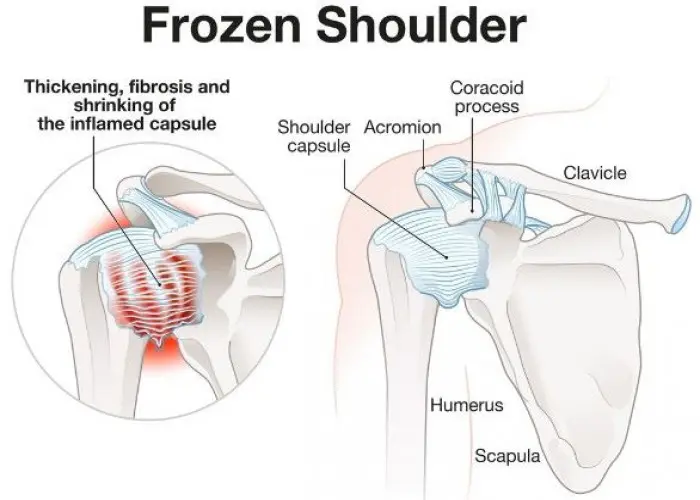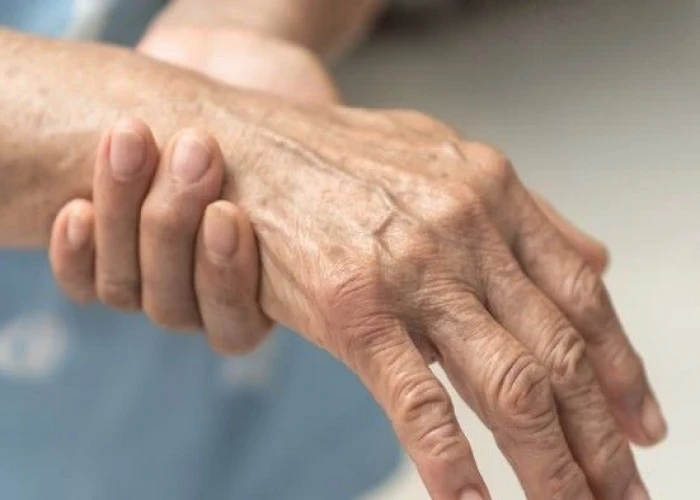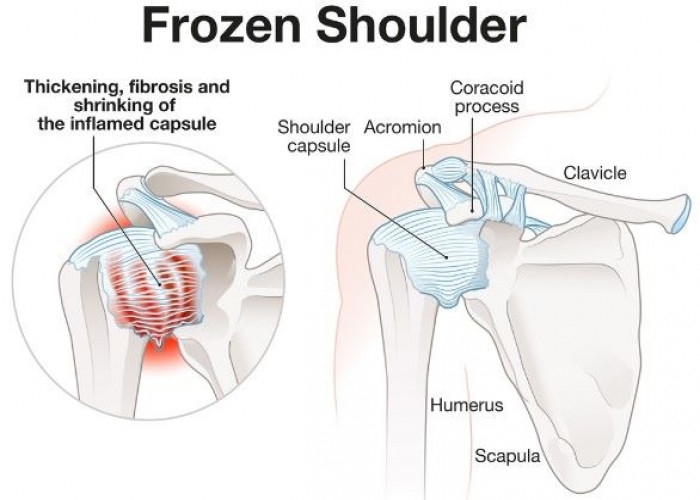 Welcome
Welcome
“May all be happy, may all be healed, may all be at peace and may no one ever suffer."
Frozen shoulder

Frozen shoulder, also known as adhesive capsulitis, is a condition that causes pain and stiffness in the shoulder joint. It occurs when the tissue surrounding the shoulder joint thickens and tightens, making it difficult to move the arm.
The exact cause of a frozen shoulder is not known, but it often develops after a period of immobilization or lack of use of the shoulder joint, such as after surgery, injury, or stroke. People with certain medical conditions, such as diabetes or thyroid problems, may also be more likely to develop frozen shoulders.
Symptoms of a frozen shoulder can develop gradually and usually include:
- Pain and stiffness in the shoulder joint
- Limited range of motion in the shoulder joint
- Difficulty performing daily activities that require arm movement, such as reaching or lifting
Treatment for a frozen shoulder typically involves physical therapy to help improve the range of motion and reduce pain. In some cases, anti-inflammatory medications or corticosteroid injections may also be used to reduce inflammation and pain in the affected area. If these treatments are not effective, surgery may be considered.
It is important to seek medical attention if you experience symptoms of a frozen shoulder, as early treatment can help prevent the condition from becoming worse and can help improve the chances of a full recovery.
Research Papers
Disease Signs and Symptoms
- Shoulder pain
- Shoulder or arm weakness
Disease Causes
Frozen shoulder
The bones, ligaments and tendons that make up your shoulder joint are encased in a capsule of connective tissue. Frozen shoulder occurs when this capsule thickens and tightens around the shoulder joint, restricting its movement.
Doctors aren't sure why this happens to some people, although it's more likely to occur in people who have diabetes or those who recently had to immobilize their shoulder for a long period, such as after surgery or an arm fracture.
Disease Prevents
Frozen shoulder
One of the most common causes of frozen shoulder is the immobility that may result during recovery from a shoulder injury, broken arm or a stroke. If you've had an injury that makes it difficult to move your shoulder, talk to your doctor about exercises you can do to maintain the range of motion in your shoulder joint.
Disease Treatments
Most frozen shoulder treatment involves controlling shoulder pain and preserving as much range of motion in the shoulder as possible.
Medications
Over-the-counter pain relievers, such as aspirin and ibuprofen (Advil, Motrin IB, others), can help reduce pain and inflammation associated with frozen shoulder. In some cases, your doctor may prescribe stronger pain-relieving and anti-inflammatory drugs.
Therapy
A physical therapist can teach you range-of-motion exercises to help recover as much mobility in your shoulder as possible. Your commitment to doing these exercises is important to optimize recovery of your mobility.
Surgical and other procedures
Most frozen shoulders get better on their own within 12 to 18 months. For persistent symptoms, your doctor may suggest:
- Steroid injections. Injecting corticosteroids into your shoulder joint may help decrease pain and improve shoulder mobility, especially in the early stages of the process.
- Joint distension. Injecting sterile water into the joint capsule can help stretch the tissue and make it easier to move the joint.
- Shoulder manipulation. In this procedure, you receive a general anesthetic, so you'll be unconscious and feel no pain. Then the doctor moves your shoulder joint in different directions, to help loosen the tightened tissue.
- Surgery. Surgery for frozen shoulder is rare, but if nothing else has helped, your doctor may recommend surgery to remove scar tissue and adhesions from inside your shoulder joint. Doctors usually perform this surgery with lighted, tubular instruments inserted through small incisions around your joint (arthroscopically).
Disease Diagnoses
Disease Allopathic Generics
Disease Ayurvedic Generics
Disease Homeopathic Generics
Disease yoga
Frozen shoulder and Learn More about Diseases

Adrenal cancer

Autism spectrum disorder

Progeria

Migraine

Peripheral neuropathy

Lead poisoning

Blocked tear duct

Herniated disk
frozen shoulder, হিমশীতল কাঁধ
To be happy, beautiful, healthy, wealthy, hale and long-lived stay with DM3S.
